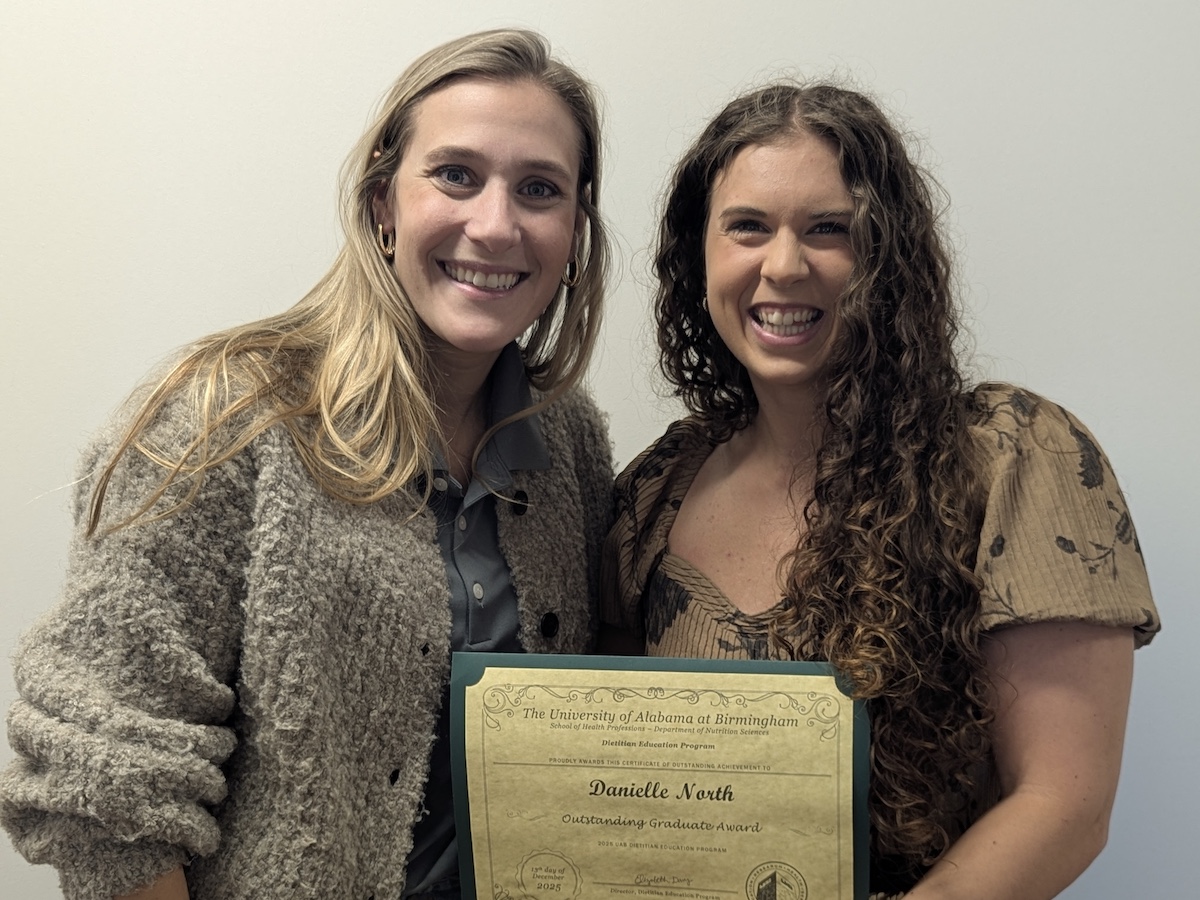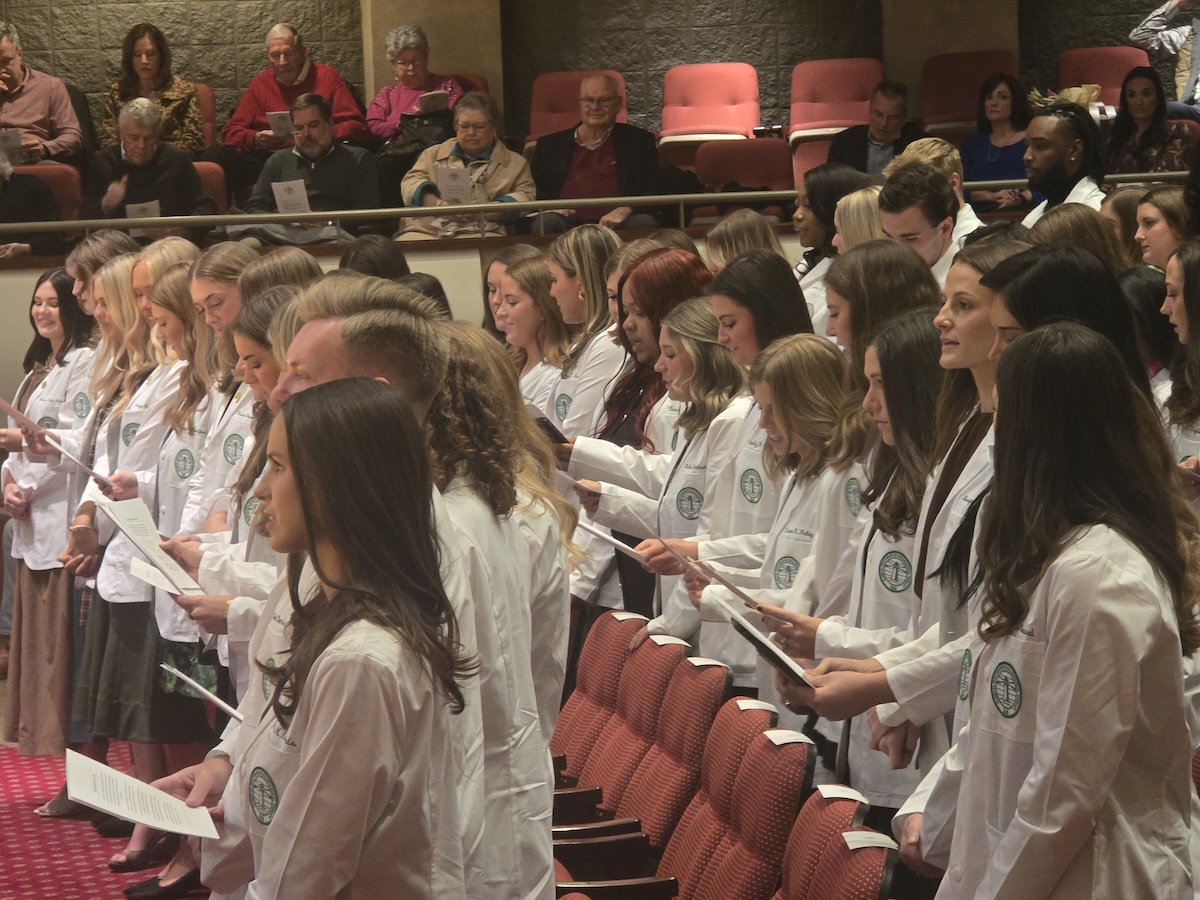
Mark Lainoff is not afraid. Doesn’t fear success – elected UAB MSHA Class 55 President. Willing to take risks – started a business that went under. No horror over pain – followed his college baseball dream through injury. No terror of the unknown – volunteered to serve at UAB’s COVID-19 testing site.
In March 2020, when the pandemic first gained traction, he responded when the UAB Health System asked for volunteers to go to the front lines.
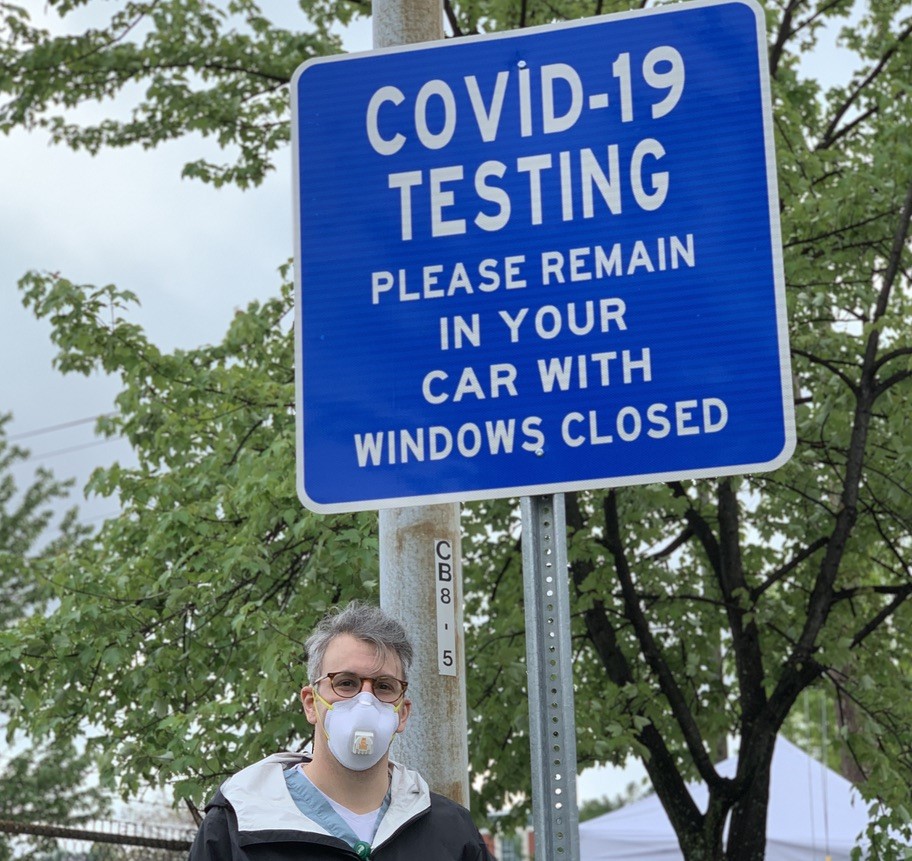 “Our role as triage volunteers was to be the first point of entry for patients in queue at the downtown testing site, verifying appointments, directing traffic, and troubleshooting any issues for patients before they received their test. Sometimes, we even found ourselves speaking with patients over the phone through a closed window to help calm their nerves or navigate their expectations,” said Lainoff.
“Our role as triage volunteers was to be the first point of entry for patients in queue at the downtown testing site, verifying appointments, directing traffic, and troubleshooting any issues for patients before they received their test. Sometimes, we even found ourselves speaking with patients over the phone through a closed window to help calm their nerves or navigate their expectations,” said Lainoff.
The first week they tested less than 100 patients each day. Within a month that figure ballooned to what seemed like 300-400 patients per day – with an interdisciplinary team of volunteers and staff contributing to the ever-changing operation.
Lainoff wasn’t alone. Several of his classmates were also volunteering at the downtown testing site, and in other capacities like raising funds for health care workers through Frontline Foods or delivering groceries to vulnerable elderly.
Preparing For Disaster
Lending a hand in crisis was a natural reaction for the class that was trained for this moment during the fall semester. Every year, the MSHA program hosts a Disaster Preparedness Week where alumni deliver first-hand crisis lessons and the students complete a simulation exercise led by the M.S. in Healthcare Simulation program team and the Office of Interprofessional Simulation at UAB.
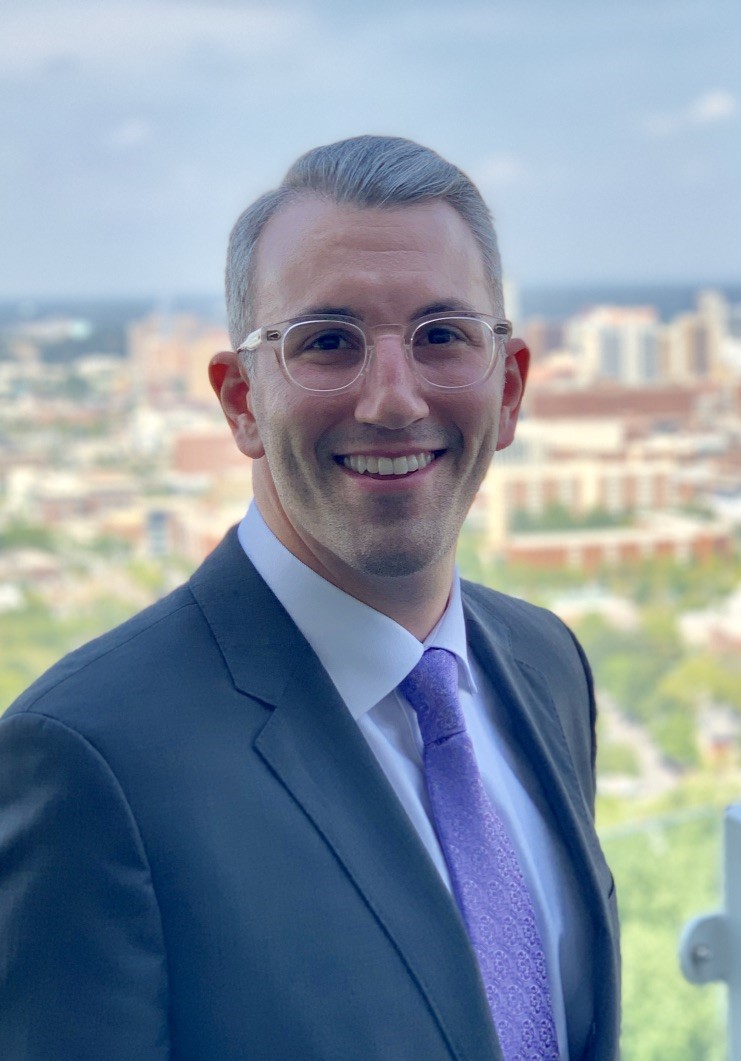 “None of us anticipated we would face a public health disaster until we were actually in our careers,” said Lainoff. “We assumed a few of us may experience a natural disaster – a hurricane, tornado, or earthquake scenario – during our fellowship and into our careers, but we never anticipated to all go through such a monumental crisis while still in school.”
“None of us anticipated we would face a public health disaster until we were actually in our careers,” said Lainoff. “We assumed a few of us may experience a natural disaster – a hurricane, tornado, or earthquake scenario – during our fellowship and into our careers, but we never anticipated to all go through such a monumental crisis while still in school.”
Lainoff credits their preparedness and their service-minded response to the culture of the UAB MSHA program – from his classmates, faculty and staff, to the many alumni who generously give back.
“Every day in this program, I have the opportunity to collaborate with and learn from some of the most insightful, compassionate, and forward-looking people in our industry,” said Lainoff. “The UAB MSHA program has challenged me to grow personally and professionally by offering a didactic platform which welcomes the unique perspectives of a diverse group of students, and an immersive learning environment within the renowned UAB Health System – I feel humbled to be a part of it.”
Collaborating For Activism
And then in late May, George Floyd was killed during an arrest. This set off a chain of events to address racial injustice across the U.S., including a movement within the UAB MSHA Class 55. Lainoff says class leadership organized a committee to host a moderated Zoom forum only for their class – no faculty, no staff.
They posed questions like: • How did you feel if classmates did or did not reach out to you at this time? • What do you think the program did right this year to break down barriers of race, gender, and other social identifiers? • What are the opportunities for improvement and how can we create a more inclusive, positive experience Class 56, Class 60, and Class 100?
The call lasted three-and-a-half hours.
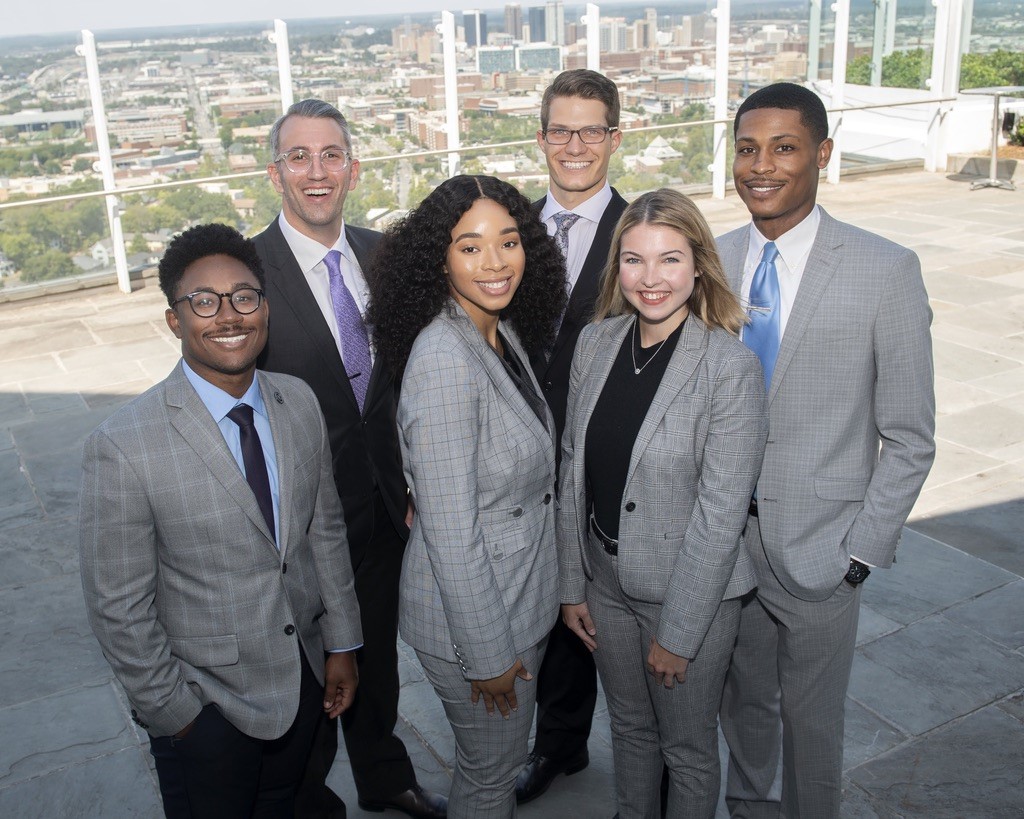 “This was one of the most powerful, unified moments for our class to date – we were able to come up with actionable recommendations to faculty and bind together through vulnerable discussion and brutal honesty,” said Lainoff. “Classmates shared personal stories about their backgrounds and their lives, they disclosed fears and anxieties, and they spoke to what they hoped of their classmates and this program verses the reality. We gave ourselves the platform to genuinely hear the voices of our peers and empathize with their experiences.”
“This was one of the most powerful, unified moments for our class to date – we were able to come up with actionable recommendations to faculty and bind together through vulnerable discussion and brutal honesty,” said Lainoff. “Classmates shared personal stories about their backgrounds and their lives, they disclosed fears and anxieties, and they spoke to what they hoped of their classmates and this program verses the reality. We gave ourselves the platform to genuinely hear the voices of our peers and empathize with their experiences.”
The call also led to immediate change. Class leadership decided to create a MSHA Diversity, Equity and Inclusion Student Council and added a new role to their executive team: Vice President of DEI. The new position and the council will work closely with Jessica Williams, Ph.D., the department’s director of Diversity, Equity and Inclusion. Together, they will host regular panel discussions on DEI initiatives and current topics with students, faculty, staff and alumni, and help to provide future students with resources to be more conscientious and inclusive leaders.
“This change will ensure future students not only have access to structured diversity, equity, and inclusion programming in perpetuity, but also develop the visibility among other UAB School of Health Professions programs needed to create the most impactful interdisciplinary workforce yet,” said Lainoff. “It excites me to think about the young leaders who will come next, where they will go, and what types of change they will bring to our industry. The idea of supporting and inspiring future students empowers me daily and is a philosophy that has been passed down from my mentors.”
Navigating New Waters
For his own future, Lainoff is ecstatic to be in a multi-faceted internship at the UAB Health System. He spends a majority of his time with Melissa Mancini (MSHA Class 39), a past Birmingham Business Journal Top 40 Under 40 winner and Associate Vice President in the Office of Strategy and Business Development. He also helps facilitate projects for the Cancer Service Line and the O’Neal Comprehensive Cancer Center at UAB with Mark Wiersma, Director of Strategic Initiatives at UAB Medicine and an alumnus of the Graduate Certificate in Healthcare Quality and Safety program.
Lainoff says outside of typical lessons – teamwork, communication, problem solving – he has learned to recognize the role of strategy as a system-level competency. He understands the importance of not only helping departments and divisions expand to new markets in the long-term, but also preparing to respond to the next crisis in short-term operational design.
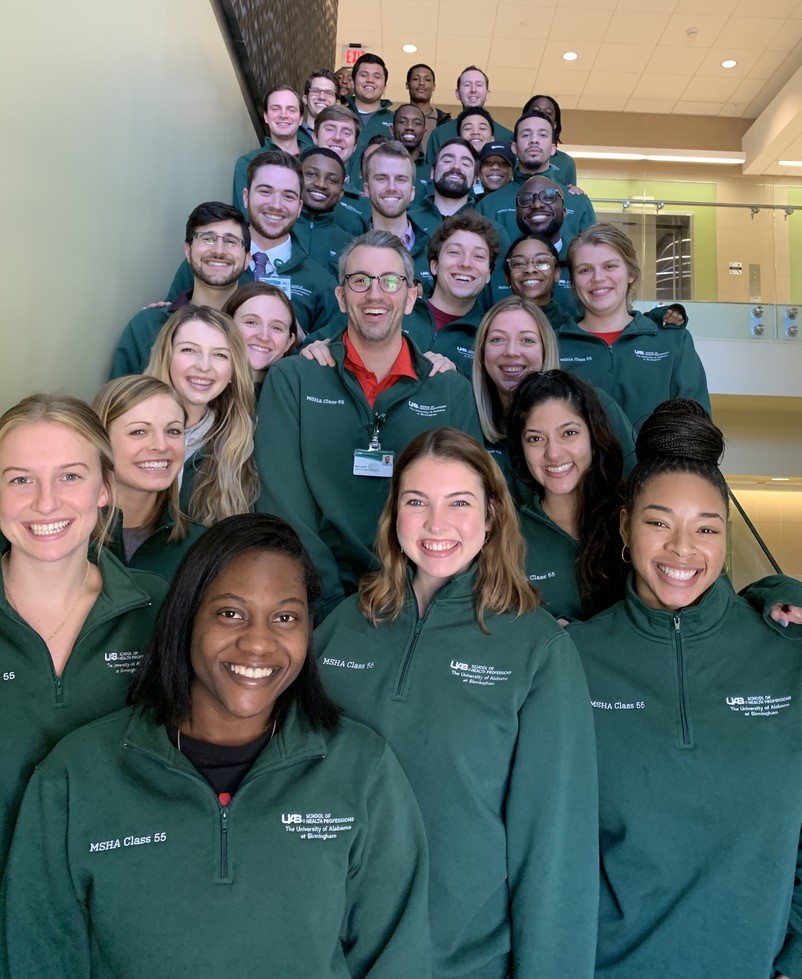 Amidst all this he is preparing and interviewing for a preceptorship. In one interview, he was asked: “If you were a boat, what kind of boat would you be?” He immediately thought of all he and MSHA Class 55 have learned and experienced in 2020.
Amidst all this he is preparing and interviewing for a preceptorship. In one interview, he was asked: “If you were a boat, what kind of boat would you be?” He immediately thought of all he and MSHA Class 55 have learned and experienced in 2020.
“I said I would be a sailboat because the long-term vision is ultimately discovery – we are embarking on an audacious mission to find new lands – but in the interim we are managing a complex team with a complex operation so we do not drown and can move with haste . We must conquer wave after wave; we must battle through all the storms; and we even have to try to avoid scurvy or mutiny. We face all this while we work together to reach our destination which could be thousands of miles away. A health system, and our healthcare industry, are great parallels to this sailboat in that the immediate goal is to be exceptional for patients, staff, and care givers today – wave after wave, but if there is not a balanced and well-refined vision, then we will fail to reach our destination and will not meet the overall needs of our communities 15, 30, or 50 years from now.”
Lainoff adds that none of the things he has learned would have been possible without the support of his peers. His growth and successes are the result of the opportunity to work with the people in his cohort and the people of the MSHA program.
“When asked where I want to be in three to five years, I really don’t have an honest answer. I am much more concerned with whether my wife, our future grandchildren, and the next generations of leaders will be proud of the work I accomplished over the course of my career – this is what I value most,” said Lainoff. “This journey at UAB is part of what will be on my epitaph.”
